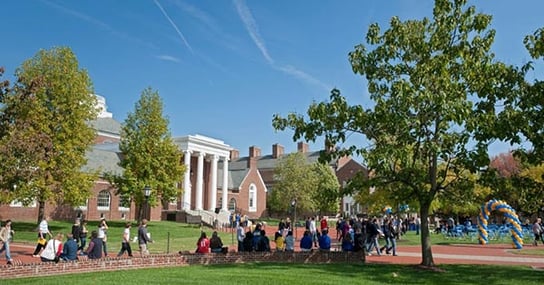
Happy Earth Day! While it may seem like everything is going wrong in the world, you may be able to find some relief in the fact that the Earth is returning to a more natural state in the face of the ongoing pandemic.
A slowdown in economic activity due to measures taken to protect against coronavirus has resulted in significant decreases in air pollution levels. The atmospheric density of several pollutants including nitrogen dioxide, which is emitted by motor vehicles, power plants, and industrial facilities, has been reduced, making the air cleaner and safer to breathe in much of the world. The absence of heavy traffic in cities has brought down noise pollution, allowing the wildlife of places like New York City and Boston to be heard unlike ever before. The murky waterways of Venice are now clear, usually clouded with sediment brought up by motorboats. A small silver lining on a tragic situation, the planet is sending us a simple message: change our consumption and way of living, or it will change it for us.
As entrepreneurs, here at Horn, we work to combat real-world problems that plague our lives and the lives of others. Taking care of our planet is a problem that every person should hold themselves responsible for, and there are many ways to help. Big or small, every conservational action taken makes a difference. Here’s how some members of our community are working to protect the Earth!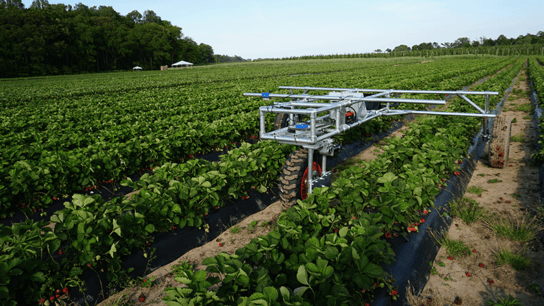
TRIC Robotics, a startup founded and led by UD alumnus Adam Stager, aims to reduce the amounts of harmful pesticides used on farms to protect crops from unwanted vegetation, insects, and pests. The TRIC MU-2 platform uses autonomous robots that utilize UV-C light as an alternative to traditional chemicals. The robots collect data on plant health and growth, providing valuable predictions for crop yield and showing problem areas to be addressed on farms. TRIC Robotics unique approach to farming, which has been primarily used on strawberry fields, allows for safer, pesticide-free crops, eliminating the harmful runoff that can happen when rainwater carries pesticides into water sources like rivers, lakes, and streams.
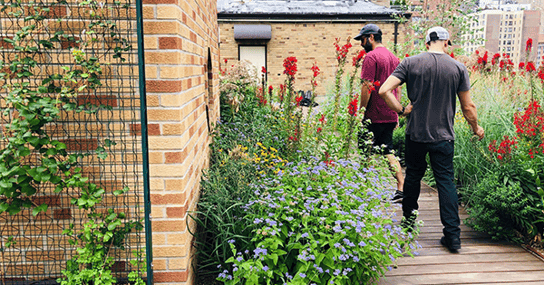
Sage, another business stemming from Horn Entrepreneurship, helps companies create eco-friendly green roofs and living walls that use considerably less water. The business uses its smart technology to monitor green projects for moisture levels and controls the output of water based on the data collected. In a time where clean water is in high demand but short supply, our natural resources need to be conserved as much as possible. Research on the effectiveness of Sage in smart gardens has shown up to a 20% reduction in water usage over as little as two weeks. Applied across many platforms, Sage’s innovative tech could bring down water usage for many industries and have a crucial impact on the planet.
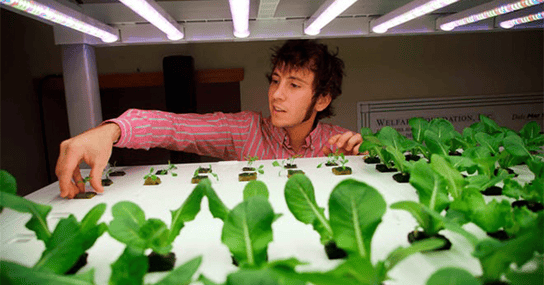
Second Chances Farm is a vertical farming initiative founded by serial entrepreneur and UD alum Ajit George. The farm, located inside a factory in Wilmington, uses hydroponics to grow crops without soil using a system of pipelines that distribute a solution of mineral-rich water and nutrients. The venture tackles one of the most prominent and fast-growing issues that the world faces: Growing demand for food amidst diminishing amounts of free land to be used as farmland. As the Earth’s population continues to grow, more land will be needed to house and feed everyone. Instead of cutting down forests to make more space for agriculture, they build farms in buildings, stacking multiple layers of crops on top of each other, so more food can be generated without increasing the amount of land taken up. This method of growing food has many other eco-friendly benefits, including wider availability in urban settings and safer, healthier crops.
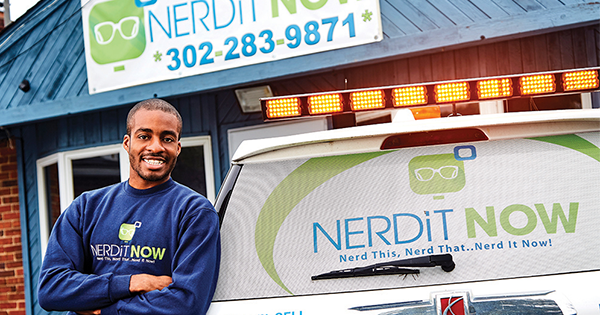
NERDiT NOW is a Wilmington-based business that buys, repairs, and sells used phones, tablets, laptops, and consoles at reduced prices, with the goal of making technology available to everyone. The business is centered around its community, donating over 100 refurbished laptops to nonprofits, community centers, and students in need yearly. Working to support students forced out of school due to the COVID-19 pandemic, NERDiT NOW aims to bring 1,000 laptops to Delaware schools. By reusing and recycling technology, NERDiT NOW helps fight the buildup of e-waste, or waste from electronics. E-waste contains toxic materials like lead, zinc, nickel, barium, and chromium that can have an extremely detrimental effect on the environment, seeping into our groundwater sources and contaminating the air if warmed. These materials can hurt any humans and animals exposed, damaging blood, kidneys, as well as central and peripheral nervous systems. The NERDiT NOW team’s sustainable business practices save these old electronics from polluting our air and water, turning them into valuable assets for their community.
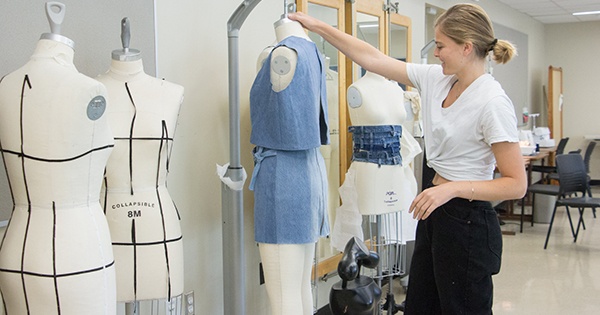
andagain, founded by University of Delaware alumni Morgan Young and Greg Harder while still at school, is the self-deemed most sustainable luxury fashion label in the world. When working with denim fabric, it traditionally takes over 1,000 gallons of water to produce just one pair of jeans. Instead, andagain creates high fashion from otherwise unsellable or recycled clothing fabric using zero-waste manufacturing, resulting in eco-friendly, unique wearable designs. andagain was built around sustainable practices to avoid extravagant use of water, and they continue to look for more ways to do more with less. Even after they finish their pieces, they are often used later in collaborations with artists, who transform the clothes into pieces of wearable art.
You don’t have to build your own business to help save the planet! By staying informed on environmental issues and living sustainably, you can reduce your carbon footprint. Changing how you travel, what you eat, and how much waste you produce are all ways you can alter your lifestyle to reduce your impact on the planet. Students who are interested in learning more about innovative ways to make the world greener or more sustainable should consider pursuing an entrepreneurship certificate in New Product Development or Eco-Entrepreneurship. The certificates, which are offered through the College of Agriculture and Natural Resources and the College of Earth, Ocean and Environment, detail and follow practices for creating new eco-friendly agricultural products and for conservational efforts.
About Horn Entrepreneurship
Horn Entrepreneurship serves as the University of Delaware’s creative engine for entrepreneurship education and advancement. Built and actively supported by successful entrepreneurs and thought leaders, Horn Entrepreneurship empowers aspiring innovators and entrepreneurs as they pursue new ideas for a better world.

